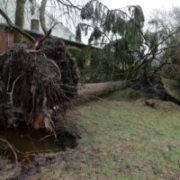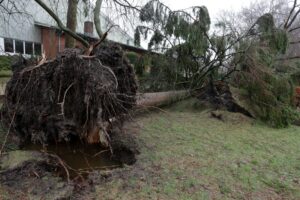What You Need to Know About Teen Driver Insurance
 The journey of your teenager learning to drive is an exciting milestone in their life. It represents newfound freedom and independence. However, along with the excitement comes a great deal of responsibility. It’s crucial to remind your teen that driving is a privilege, not a right, and that they must prioritize safety and remain focused while behind the wheel.
The journey of your teenager learning to drive is an exciting milestone in their life. It represents newfound freedom and independence. However, along with the excitement comes a great deal of responsibility. It’s crucial to remind your teen that driving is a privilege, not a right, and that they must prioritize safety and remain focused while behind the wheel.
As a parent, it’s important to understand when to add your teen driver to your insurance policy. While the specific requirements may vary by state, in most cases, your auto insurance policy will cover your teen as a permitted driver until they obtain their driver’s license. However, once they receive their license, it’s essential to add them as a driver to your insurance policy, even if they don’t have their own vehicle.
Choosing not to add your teen driver to your policy not only violates the terms of your insurance agreement but can also result in a denied claim if they are involved in an accident. It’s important to proactively contact your insurance agent to discuss your options and determine the best time to add your teen driver to your policy.
Here are a few key considerations to keep in mind:
- Good Student Discounts: Some insurance carriers offer discounts for students who maintain good grades. Encourage your teen to excel academically as it may lead to reduced insurance premiums.
- Delivery Jobs: If your teen is employed in a job that involves delivery services, such as delivering pizzas or newspapers, it may require a special commercial policy. Discuss this with your insurance agent to ensure appropriate coverage.
- Multi-Vehicle Discounts: Even if your rates increase due to adding your teen driver to your policy, having their own vehicle can potentially qualify you for a multi-vehicle discount, resulting in overall savings.
- Higher Premiums for Separate Policies: Opting for a separate insurance policy for your teen driver will likely lead to higher premiums compared to adding them to your existing policy.
Ensuring the safety of your teen driver on the road is your top priority, and obtaining the right insurance coverage for your family is ours. If you have a teen driver in your household, we encourage you to reach out to our agency. We will be happy to discuss your specific situation and help you explore the insurance options that best suit your needs.



 Vehicle theft is an unfortunate reality, with a vehicle being stolen every 44 seconds in the United States, according to the National Highway Traffic Safety Administration. It’s a distressing experience that can disrupt your life and leave you feeling violated. Fortunately, there are measures you can take to reduce the risk of your car being stolen. Here are five essential tips to help protect your vehicle:
Vehicle theft is an unfortunate reality, with a vehicle being stolen every 44 seconds in the United States, according to the National Highway Traffic Safety Administration. It’s a distressing experience that can disrupt your life and leave you feeling violated. Fortunately, there are measures you can take to reduce the risk of your car being stolen. Here are five essential tips to help protect your vehicle:
 Neighbors can be a great source of support and friendship, lending a helping hand when needed and creating a sense of community. However, living in close proximity to others can also give rise to uncomfortable situations, particularly when it comes to property damage caused by trees.
Neighbors can be a great source of support and friendship, lending a helping hand when needed and creating a sense of community. However, living in close proximity to others can also give rise to uncomfortable situations, particularly when it comes to property damage caused by trees.